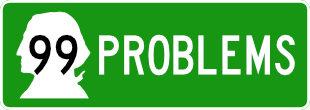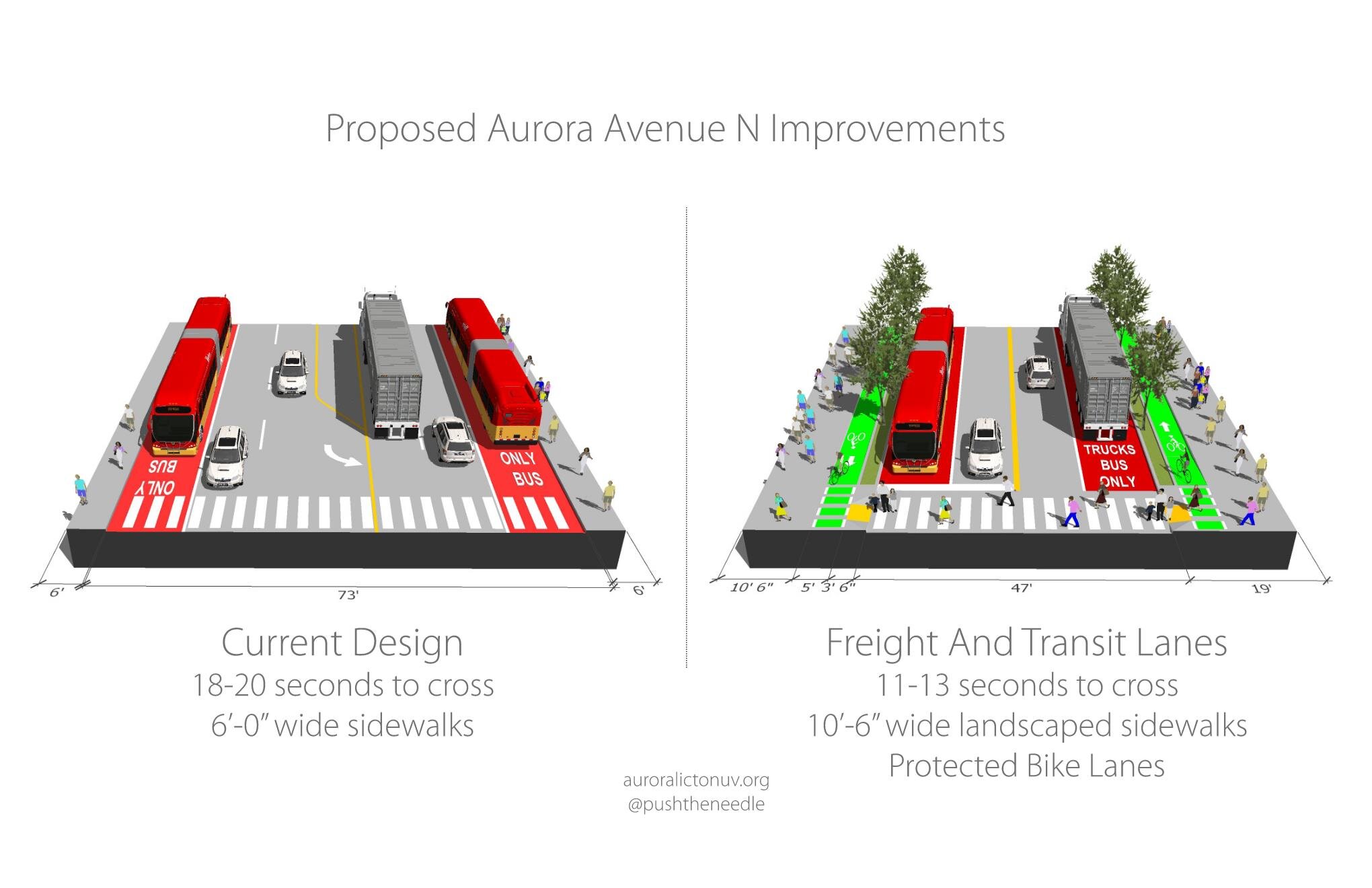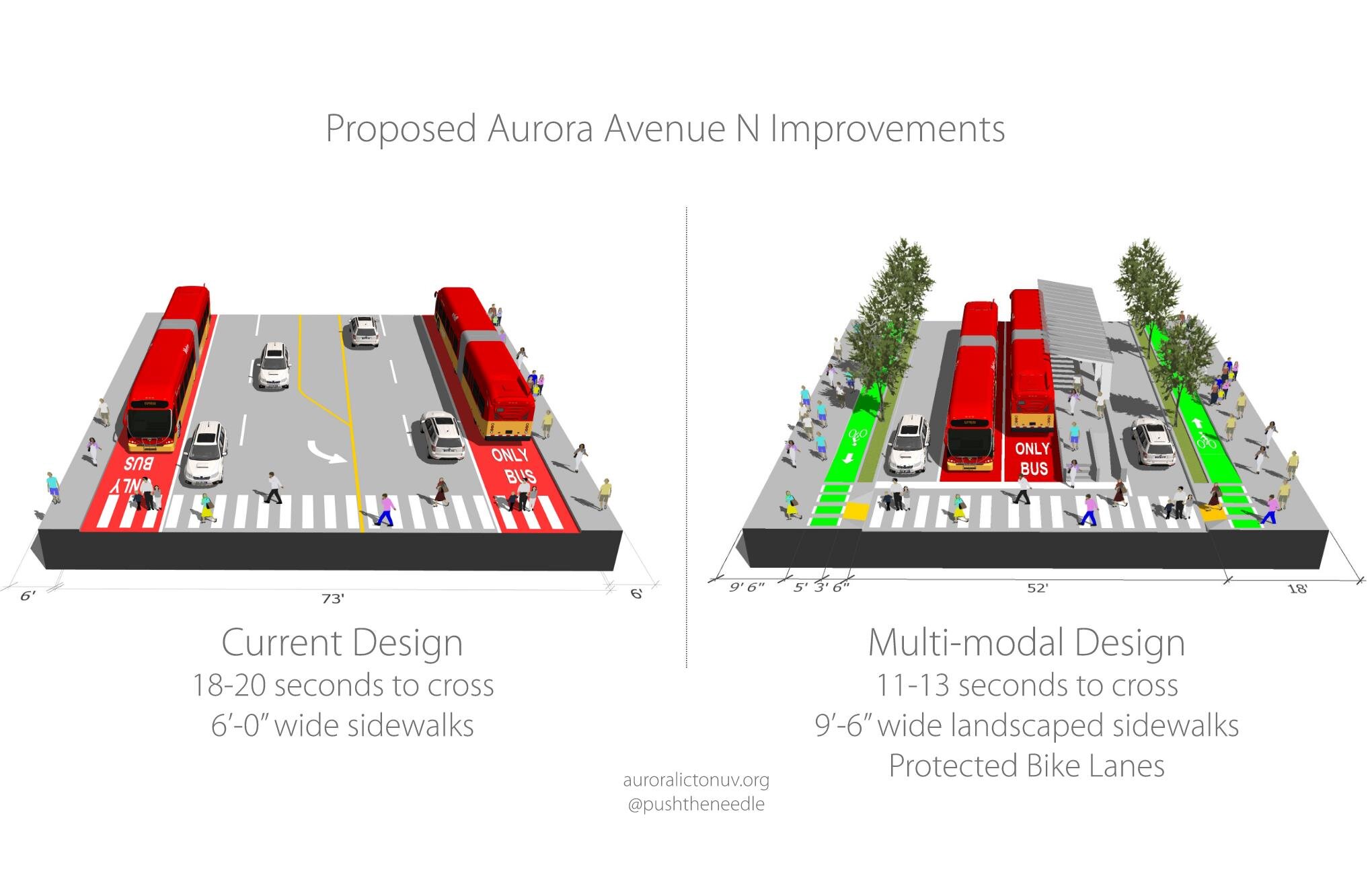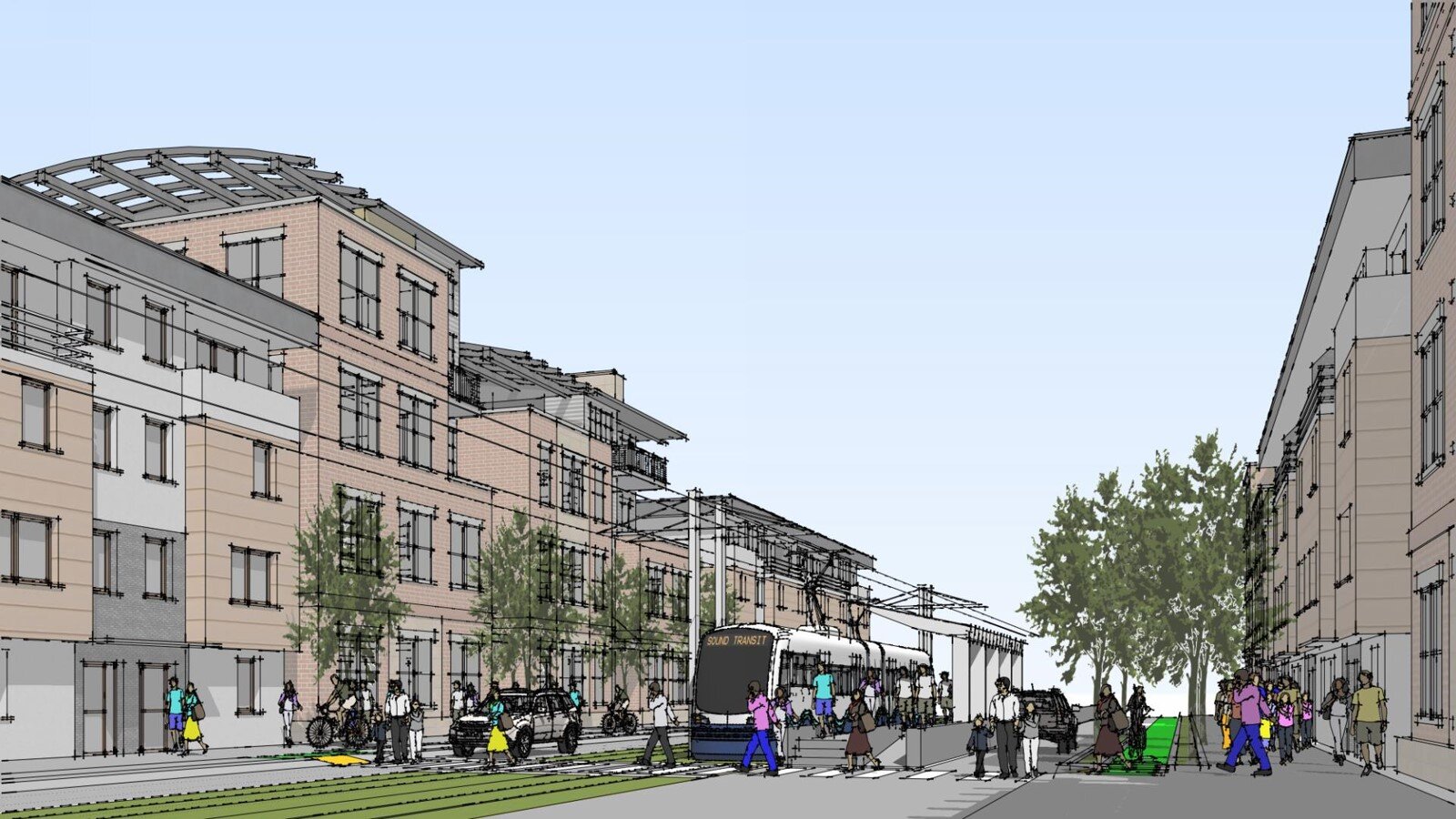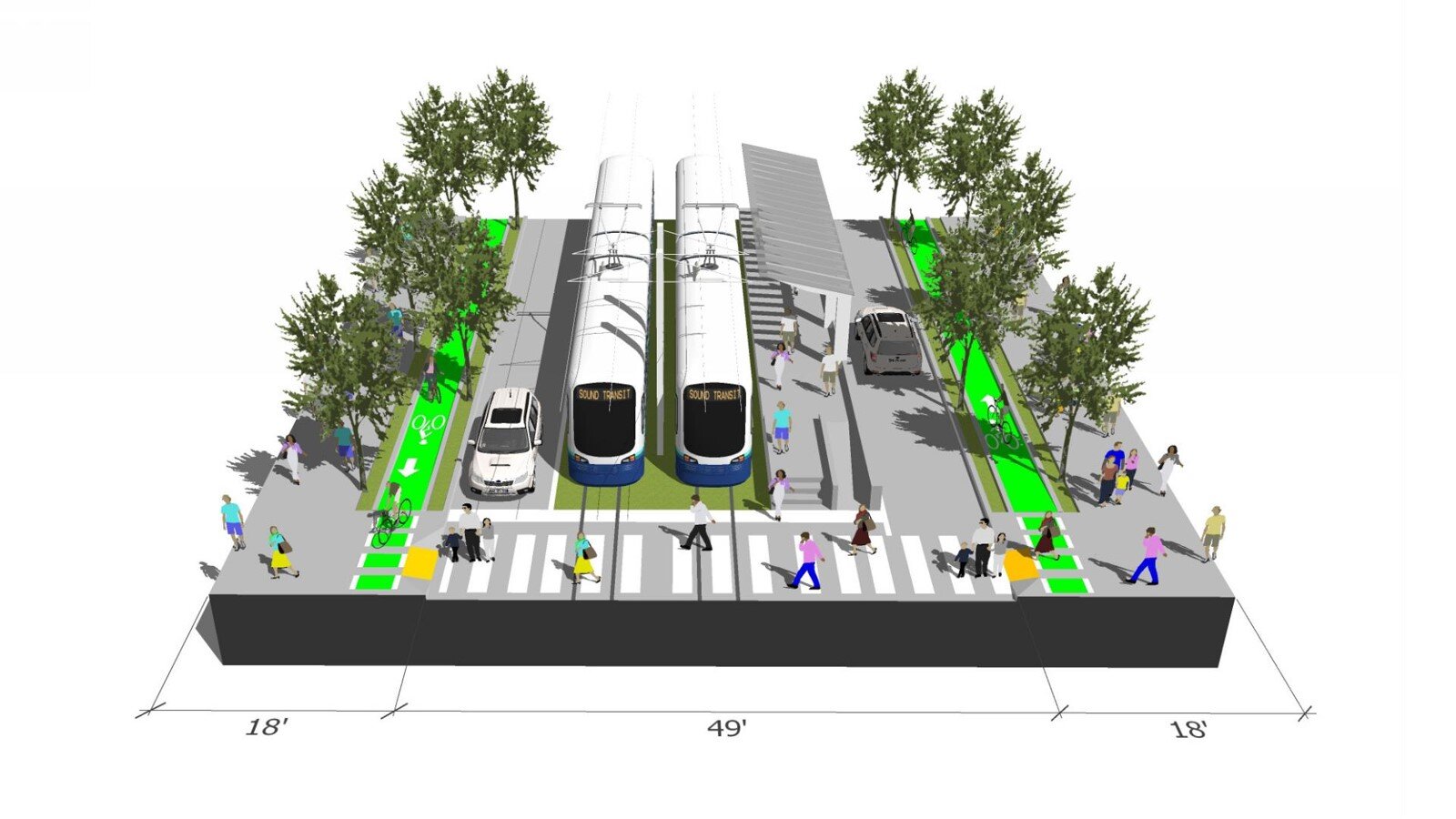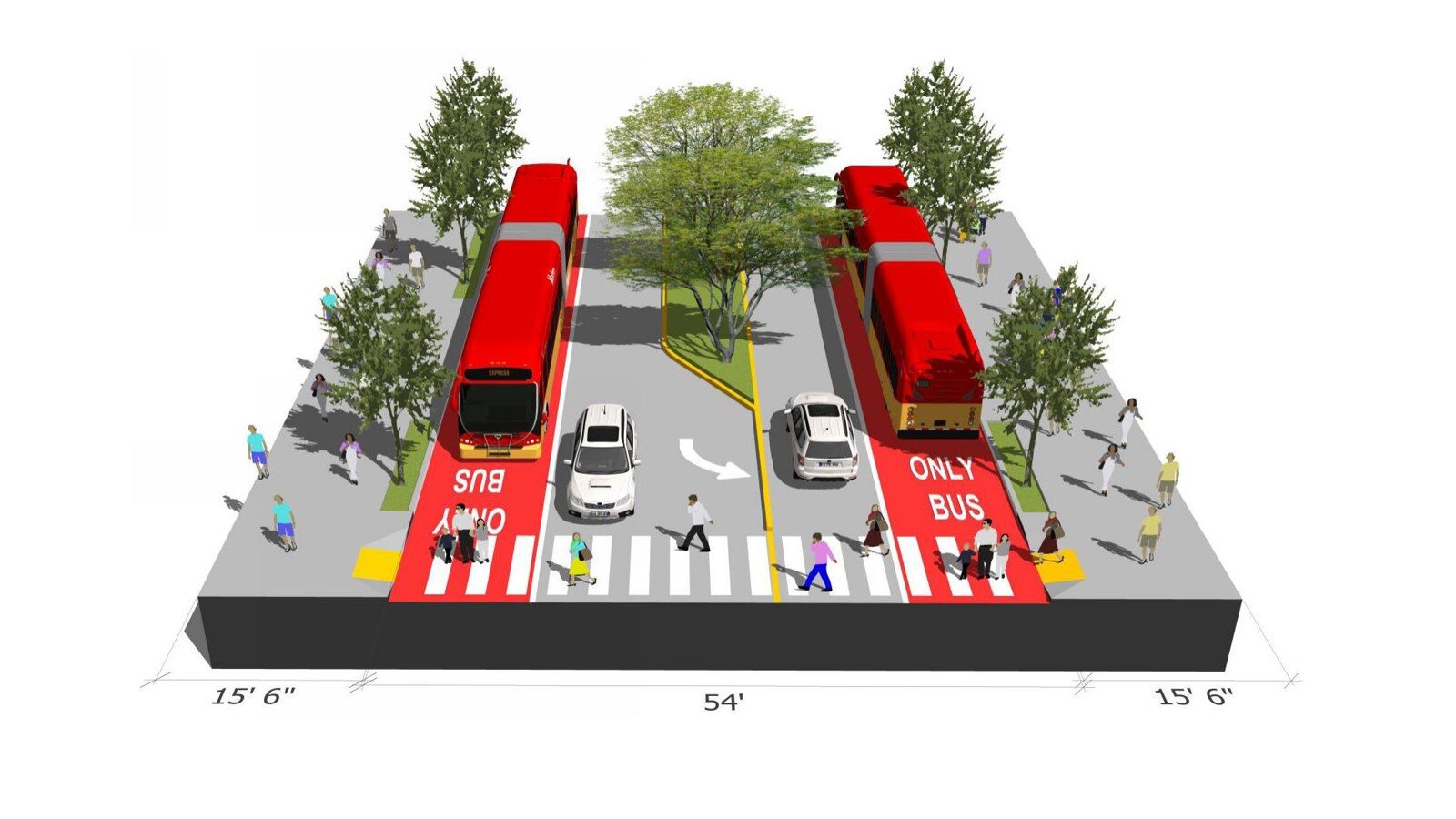Dreams for a Better Aurora
Do you have dreams of a better Aurora? Share your ideas on Twitter or Instagram using the hashtag #ReimagineAurora and we may share them here.
Dreams of CITY COUNCIL CANDIDATES
The Aurora Reimagined Coalition asked the 2021 candidates for Seattle City Council Position 9 about their Visions for Aurora. The question and their responses are below.
ARC: Aurora is unsafe for people biking, walking, and even driving. The road is one of the most deadly stretches in the city with multiple pedestrian fatalities in the last two years. With over 1,000 homes approved or under construction along Aurora, the corridor will only become busier and more dangerous in the coming years. On behalf of the Aurora Reimagined Coalition, what is your vision for the Aurora of tomorrow? How do you plan to make Aurora safer for those who walk, bike, roll, and drive along and across the highway and how would you fund those efforts?
Sara Nelson: Thank you for bringing the Coalition's concerns to my attention! I live in Green Lake and have frequent occasion to travel the corridor so I've seen first hand many of the dangers you're talking about. I've reviewed your slide pack and learned a lot about specific safety needs that should be addressed by the City and I will integrate that knowledge into my campaign platform. Thank you for your work to make Aurora a safer road along which to walk, bike, ride the bus, and drive!
Nikkita Oliver: Aurora is one of Seattle’s deadliest road corridors, and most stretches of Aurora feel like a hostile and unwelcoming environment for anyone not driving in a personal vehicle. It’s the city’s responsibility to change that. Aurora can and should be a place where it’s safe and comfortable to walk, roll, bike, drive and ride transit. There should be no injuries or deaths due to car crashes on Aurora. People of all ages and abilities should feel safe crossing the street or walking to the bus stop. The corridor needs an overhaul that prioritizes the needs and safety of the most vulnerable users.
Reimagining Aurora can’t succeed without the creative input and participation of the people who live and work along this corridor. As your Position 9 councilmember, I would work with the Aurora Reimagined Coalition to get the council, mayor and SDOT on board to implement a community-supported plan. That said, here are some of the priorities that community advocates have already identified and that I strongly support.
1) We need to make building and maintaining sidewalks a priority, along the Aurora corridor and in the many neighborhoods in our city that lack safe infrastructure for walking and rolling. This will require a massive investment in sidewalk construction that is long overdue. The city will need to commit to raising new progressive revenue to fund this, and/or lobbying hard to get new funds from the state, because the existing city transportation budget is already overstretched.
2) Speeding is a major problem on Aurora, contributing to deadly crashes and dangerous conditions for people walking, rolling and biking. The city should make changes to street design to encourage slower driving speeds. This should include narrowing lanes and even removing a traffic lane, which would also create space to widen sidewalks. We must calm traffic speeds without relying on police-driven traffic enforcement that criminalizes BIPOC drivers.
3) SDOT will also need to work assertively with WSDOT to come to an agreement on lowering the speed limit on Aurora, since the city can’t do that alone.
4) Aurora is a major transit corridor and the city needs to improve the experience of bus riders. That includes making sure stops have shelters with ample seating and good lighting, and extending bus lanes to improve speed and reliability for transit riders. As housing density in the Aurora corridor increases, the city needs to make sure that residents have good reasons to choose transit instead of adding more dangerous and polluting cars to our streets.
Lastly, all of this will take money. One upcoming opportunity is the renewal of the Move Seattle levy, but we can’t wait several more years to get started. The city must push hard for funds in the next state transportation package and from the federal government. But we can’t count on that and also have to be prepared to find new local revenue sources to fund this work. Options worth considering include developer impact fees, unused car tab fee authority, a city capital gains and/or income tax, a tax on vacant properties or second homes, increasing the JumpStart big business tax, an excise tax on the purchase of luxury cars and boats, etc. The city needs to start out with a clear commitment to fund this work with urgency, figure out the scale of investment that is needed, and then figure out how to raise the funds through the most progressive revenue sources available.
Dreams of Ryan DiRaimo
Follow Ryan at @PushTheNeedle
Dreams of RUSS at Handy andy
Handy Andy Rent-A-Tool is a long-time business and neighborhood fixture on Aurora Avenue.
